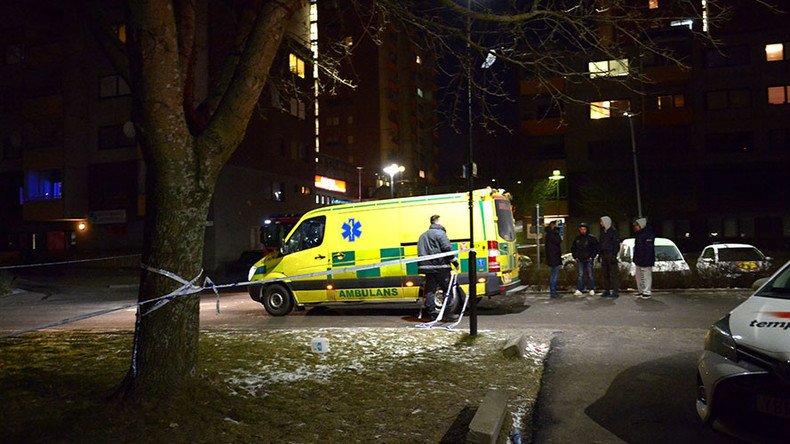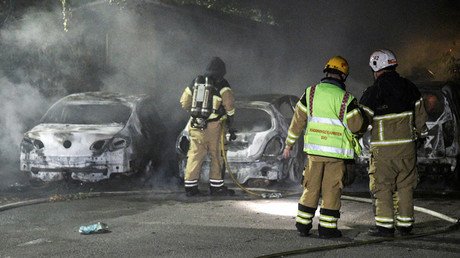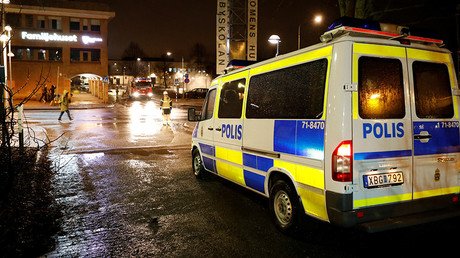‘They attack cars & personnel’: Swedish ambulance boss calls for protection in migrant ‘no go zones’

The president of Sweden's ambulance union has called for enhanced security for his personnel when working in so-called “no-go zones,” saying first responders need “special” military-grade equipment to withstand the dangers of the primarily migrant-populated areas.
Despite “dangerous situations” being nothing of extraordinary for ambulance workers, there are now areas in Sweden where even they “don’t want to be in,” head of the Swedish Ambulance Association ALARM, Gordon Grattidge told Swedish DGS TV.
“It's too dangerous to enter” areas in Sweden where “majority of the people are immigrants,” Grattidge said in an interview with a Swedish journalist, published earlier this week.
Citing his association workers’ “own experience,” as well as “reports from other parties,” the ambulance union chief said the escalation of violence in such areas “definitely” poses a growing threat to medical staff.
“We can be prevented from entering, we may be blocked from getting out. Our vehicles can be attacked, and we personally can be exposed to physical violence,” he said.
Saying that “areas with large groups of violent people” have become a “constant concern” for Swedish ambulance workers, Grattidge claimed attacks from such groups “of up to 30 people” happen “about once a week,” forcing medical staff “to retreat and wait for the police.”
These groups do not just throw stones, he said, warning that “hand grenades have been thrown at police.” Since 2015 Sweden has indeed seen a sharp increase in grenade attacks and incidents, commonly attributed to gang wars.
“It's an unpleasant environment no one wants to be in,” said Grattidge, who has been recently reappointed to lead the Ambulance Association for the next two years. “There is fear [among ambulance workers] resulting in illness, sick leave and job termination,” he claimed.
READ MORE: Leading Swedish mall turned into ‘no-go zone’ by migrant teen gangs – report
In order to protect paramedics on emergency calls, the union has asked for military-grade equipment for their workers, DGS TV reported.
They need “special equipment to be able to go with the police into dangerous situations,” Grattidge said, explaining that while the police are already equipped to be able to resist violence, ambulance workers have to “work with lighter protection in the form of body armor and helmets.”
Their current equipment is not adequate to deal with the “dangerous” situations in the “no go zones,” he added.
“I know the subject of 'no go zones' is sensitive and controversial, but for us it really is a no go because we have directives not to put our staff into dangerous situations... We are supposed to get personal protection from the police when we enter these areas,” he said, adding that such “no-go zones where primarily migrants live... are increasing in numbers.”
Sweden has always prided itself as a country with one of the most liberal laws toward refugees, but the migrant crisis in Europe and the influx of asylum seekers has put an increasing strain on Swedish authorities. The number of so-called “no go zones,” where police have significant problems in tackling crime, have grown to over 50 such areas across the country last year.














